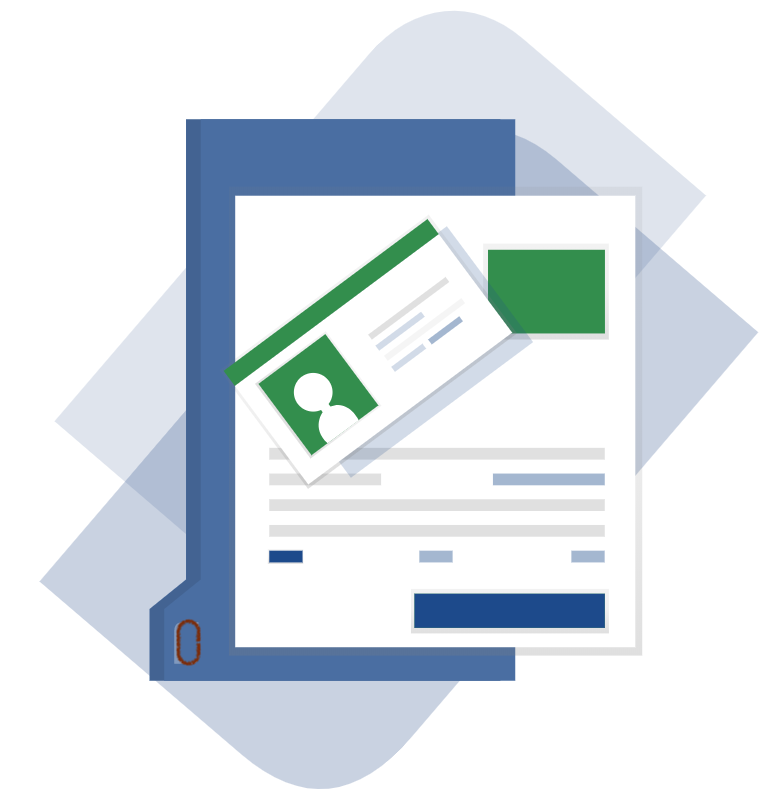Exams are a necessary component of student life, and it is very common to get cold feet’s when exams are around. Getting nervous during an exam and managing/ maintaining your cool while you are in the exam are both necessary elements.
First of all, one should be mindful that positivity yields positivity, so walk into the exam with a positive attitude. However, you should also be mindful of murphy’s law, which says that anything that can go wrong will go wrong, so you must prepare your best.
Secondly, trust in yourself; if you don't, you will not be completely focused on the exam. Also, try not to engage in unnecessary conversation with classmates, as this will only make you anxious.
Lastly, once the examination begins, don't be concerned with what others are doing in the vicinity. Some students may start writing or typing right away, which will distract you if you aren’t at the stage yet.
Hence, considering this backdrop, let us explore some handy tips while you are exam-zoned.
Have A Good Night Sleep
To perform at your best, ensure you get a good nap, because if you will go into the exam tired and stressed, you will get a lower grade, and that is quite obvious. Everyone understands that sleep is not only necessary for academic performance, but also good health.
Poor sleep is associated with several negative symptoms, including depression, decreased affability, memory issues, impaired critical thinking skills, anxiety, and anxiousness. So much, that it is prescribed that college students should at least get 7-8 hours of quality sleep each night to stay healthy and calm their tensions.
Inconsistent sleep schedules have been associated with poorer GPAs, but consistent sleep has been shown to increase academic performance.
Also Read: You Won’t Believe How Sleep Cycle Can Affect Your Academic Success!
Taking Care of the Diet
Eat a well-balanced breakfast the exam morning, and do not skip breakfast at any cost. Now, this doesn’t mean having a huge breakfast, but you want to have something in your system so that your brain operates at its optimal level.
Always eat energy-producing foods before going to an exam and avoid heavy foods that may make you asleep during the exam.
Never go to a test on an empty stomach since you can end yourself focusing on your hunger rather than your exam paper, also exam pressure may take a toll on your blood sugar levels.
Carry a water bottle to the exam hall if possible to stay hydrated.
Making The Most Out of the Preparation Time
Exams become a nightmare for those of you who disregard their textbooks throughout the year, and just before the exam, they try to take it in at once. It becomes a race to see how quickly you can stuff a year's worth of material into your head.
Most of us do the same thing as the exam approach. However, the right way would rather be covering large portions of the syllabus every day and breaking them down into smaller parts. You will be able to memorize very little on exam day if you rush through all of the chapters you haven't yet covered.
You should keep your mind clear of any exam-related thoughts or tension while on 'break.' Reading the chapters and underlining key points will assist a lot, but writing down the key things you read on a piece of paper or in your notebook can help you recall knowledge even more.
Stress-Relieving techniques
Students are among the utmost common stress victims. Below are some stress-relieving techniques for students:
Water Sipping
Carry a water bottle in the exam hall, but do not drink large portions, but instead whenever your mouth feels dry, just take a few sips and put it back, that is because you do not want to rush to the restroom for attending your natural calls, as not only they distract the focus but also waste time.
Box Breathing
When you're feeling overwhelmed, box breathing can help you cope with panic and stress. Box Breathing is Inhaling breath with a count of five, holding breath for a count of five, and exhaling breath with a count of 5. Do this like4 5 times, and you will feel more focused and relieved. Counting helps to divert your attention away from the panic-inducing scenario, allowing you to better manage and control your reaction.
Mental imagery relaxation
Guided visualization is a technique for reducing stress. It's a soothing approach that involves visualizing nice, peaceful surroundings like sandy scenery or a peaceful field.
Time Management and Focus
Running out of time is among the utmost aggravating elements of exams. Estimate the number of questions and look for your high-scoring ones. If a question is worth 25% of the total score, you should focus on it first or at the very least keep it in mind so you don't get distracted by smaller questions worth fewer points.
Take a deep breath and thoroughly read each question before proceeding. There may be certain questions for which you don't have an answer or find it difficult to respond. It's preferable to write simply what you know in this circumstance and go on to the following question.
Moreover, making it a habit to check the time after every few questions can benefit you in the long term. It's easy to become distracted when you know you'll have to sit still and focus on one task for a lengthy amount of time.
Be conscious of all the factors that may confuse you when you enter the exam room or sit down to revise, and learn to ignore them.
Lastly, make sure your phone is turned off, your browser is closed, and your emails aren't configured to notify you. Don't give yourself any more excuses to lose focus.
Accepting The Results
The night before exam results day would certainly be tense. Try to divert your attention away from your results by doing something you enjoy, such as hanging out with friends, playing games, or immersing yourself in a good book - anything that will distract you from your results.
Remember that failing an exam does not mean you are a failure; you are still a nice person, just one who failed an exam. When you fail an exam, you usually only have to take it again, and you'll have plenty of time to prepare. This may cause a delay in your plans, but it isn't the end of the world.
Take a few calm breaths before looking at your results, and tell yourself that no matter what your results are, they don't affect who you are as a person.
Conclusion
To sum it up, remember, exams teach and prepare us for the wild world out there. Life is more difficult than these exams. The outcomes of the exams may not be that important later in life, but our responses to those outcomes may be more important.
Hence, we should rather understand how to calm ourselves when we are in the exam hall.
The article discussed some relaxation techniques, such as deep breathing, relaxing your muscles one at a time, or closing your eyes and visualizing a favorable result, which can assist you in being relaxed and composed both before and throughout the examination.
Want to read more? Check Out our full range of blogs! Read more article @ Parhai Likhai
Need a TUTOR? click here to start your search.
Contact us at info@parhailikhai.com or 0332-2007633















